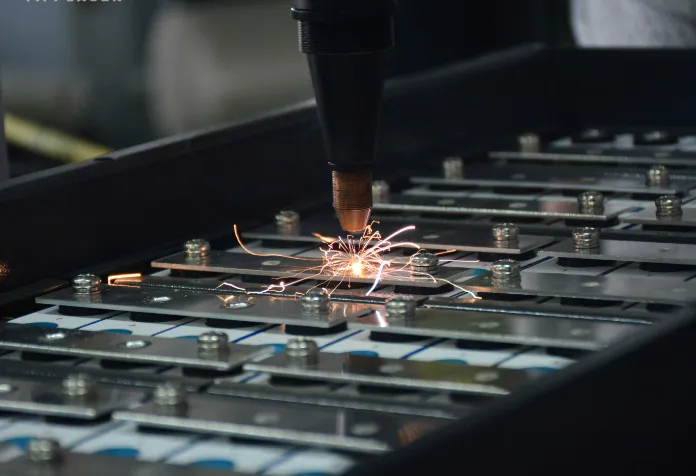Welding plays a crucial role in lithium battery manufacturing, especially when connecting battery cells to create a battery pack. The welding quality directly impacts the performance, safety, and reliability of the battery. Different types of lithium batteries, including ternary lithium, lithium iron phosphate (LiFePO4), and solid-state batteries, each require specific welding parameters to ensure optimal results.

Factors Influencing Welding Parameters
Electrode Materials: The material used in electrodes impacts the welding process, such as nickel for ternary lithium batteries vs. iron for lithium iron phosphate.
Tab Thickness: Thicker tabs require higher welding energy, while thinner tabs call for lower parameters.
Battery Size and Design: Larger packs or delicate batteries like solid-state ones need more precise welding.
Why Welding Parameters Matter
Incorrect welding parameters can lead to:
Weak welds, resulting in poor electrical connections.
Overheating, potentially damaging the battery.
Inconsistent quality, reducing performance and reliability.
Welding Techniques for Different Battery Types
Ternary Lithium Batteries: Require high-precision spot welding, especially for nickel-based electrodes.
Lithium Iron Phosphate Batteries: Require lower welding energy due to their lower conductivity.
Solid-State Batteries: Typically use laser welding to prevent damage to the solid electrolyte.
Conclusion
Each battery type demands specific welding parameters due to variations in materials, size, and performance needs. By adjusting parameters accordingly, manufacturers ensure reliable and safe battery packs. Our company offers advanced welding solutions tailored for different battery types, guaranteeing top-tier performance.



